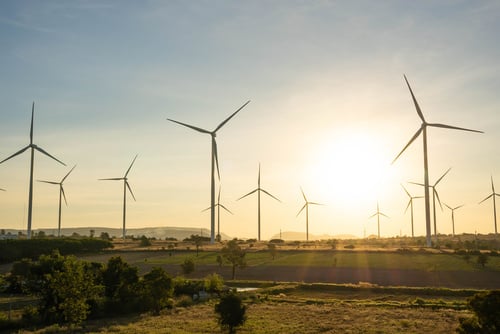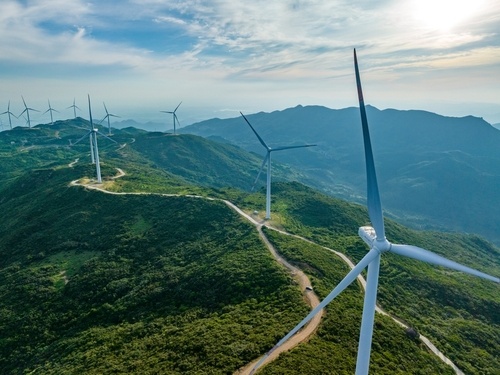Getting your strategy right for your energy procurement is always tough. It can be a complex and time-consuming process, but it's important to nail as it can be a significant expense with an equally significant impact on your organisation. We’ve rounded up the seven key things you should be looking at to get your procurement strategy tip-top for the new year and put you in a place to save money on your energy rates.
1 – Understand your consumption
The first step to improving your energy procurement is to review your consumption. Whether you are a seasoned procurement expert or a newcomer, take stock of exactly how much energy you use, when you use it and the types. It’s also valuable to assess what changes have happened and are planned. If your net zero ambitions are in full flow you may be in a position to consume less. Planned growth could mean you need more energy for more sites. Forecasting, even at a high level, will help you make better decisions about what options to take.
One way of gaining a better understanding is to utilise an energy management platform. Using tools like our Pulse software will enable you to map out exactly how your energy is used and provide forecasting and budgeting features. This will help you develop a much more rounded view of how you plan to consume energy, which is crucial for the next steps.
2 – Review your contracts
Now you have an idea of how much energy you are likely to use, it’s time to review your contracts with your business energy suppliers. Contracts should always be reviewed on a periodical basis to ensure that you're getting the best possible energy deal – particularly if your consumption has changed. Any changes will potentially open better options for you while also closing off others, so you’ll need to make sure the contract you are on makes sense for where your business is heading.
As well as the price of your unit rates, also look at when they are expiring. For flexible contracts, reviewing at least 12-18 months before expiry is a good point; with fixed you can leave it a little closer to the endpoint. But your business must be ready to move when it can to capitalise on the opportunities available and secure the best prices.
3 – Improve your relationship with risk
Even in standard market conditions, energy prices can fluctuate significantly, but the turbulence of the past few years has made this even more of an issue. This is why it's important to have a plan in place to manage risk. Different organisations have different issues. Some will demand budget certainty, whereas others have the leeway to be nimbler and ride the conditions out. If you handle public sector energy procurement you will know it has different concerns to business-related issues.
There are several ways to manage energy risk and the best approach for your organisation will depend on your specific circumstances. This may include hedging your energy costs or using a variety of energy sources so you’re less likely to feel the impact of market forces. Eligibility can also be an issue as flexible contracts are usually only open to energy users who meet certain usage thresholds. One way of accessing wholesale prices when below this is through our Flexible Energy Procurement Framework.
Risk management is one component of your procurement where you should seek support; particularly if you are a significant energy user. Investing in the market knowledge of a consultant can save your organisation a substantial amount. Head here to book a call with one of our experts to learn more.
4 – Identify efficiency opportunities
It’s a cliché, but the cheapest unit of energy is the one you don’t use. Once you have a good understanding of your consumption, you can start to identify areas where you can reduce your usage or switch to more cost-effective energy sources. Many businesses will be obligated to do this through legislation such as ESOS (the ESOS Phase 3 deadline now falls in 2024), but every organisation can benefit from using energy more efficiently.
Ways in which you can use your energy in smarter ways include replacing older equipment, coaching your workforce to turn equipment off when not in use and investing in efficient measures such as time control devices and automatic doors. You can identify these opportunities by conducting a short audit of your sites.
5 – Start lowering your emissions
As of 1st January 2024, the UK’s net zero target will be marginally over 25 years away. While a quarter of a century may seem a long time, the task that awaits UK businesses to hit the target is even greater. Any well-planned procurement strategy should also consider ways to lower your emissions, not only to save money but to futureproof your business and mitigate the impact of making these changes. Whether you need to assess your emissions through carbon reporting or plan on exploring on-site generation options, take stock of what sustainable measures are available. You can also utilise renewable energy in your procurement, something even smaller energy users such as SMEs can benefit from.
6 – Check your bills
The complexities of your utility bills mean that mistakes can remain hidden within your invoices. These errors can prove to be hugely costly, sometimes accounting for excess charges of anywhere between 10-25% of your total bill. In total our revenue recovery team has reclaimed more than £100 million in overcharges for our customers.
By conducting a forensic analysis of your past invoices, you can identify any overcharges and you’re then legally allowed to recover errors covering the past six years. The cumulative impact of these errors could represent a substantial windfall.
7 – Speak to an expert
Hopefully at the end of reading this article you’ve identified a few ways of improving your energy procurement strategy and be well placed to do more with it in 2024. Speaking to an expert can help you get the most from it, allowing you to explore how your organisation can capitalise on the markets, accelerate net zero and find ways to save money.







